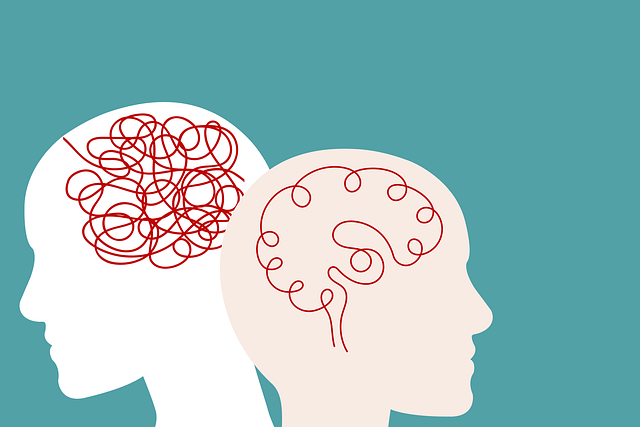Longmont Interpersonal Issues Therapy (LIIT) is a groundbreaking approach to enhancing cultural competence in healthcare. This program combines therapy with mental wellness coaching, teaching providers effective communication and understanding of diverse patients' experiences. Through role-playing and workshops, LIIT equips professionals with tools to navigate cultural norms and biases, fostering empathy and improving patient outcomes. It serves as a key strategy for delivering culturally sensitive care, reducing provider burnout, and ensuring quality healthcare for all.
Healthcare provider cultural competency training is an essential component of modern medical practice. In a diverse society, understanding cultural nuances can significantly impact patient outcomes. This article explores the critical need for effective training programs, focusing on strategies and methods that enhance cultural sensitivity. We delve into the role of Longmont Interpersonal Issues Therapy as a proven approach, and provide insights into designing comprehensive training initiatives to foster better patient-provider relationships.
- Understanding Cultural Competency in Healthcare: A Need for Effective Training
- The Impact of Longmont Interpersonal Issues Therapy on Cultural Sensitivity
- Designing and Implementing Comprehensive Training Programs for Healthcare Providers
Understanding Cultural Competency in Healthcare: A Need for Effective Training

In today’s diverse healthcare landscape, cultural competency is no longer an optional skill but a necessity. It involves understanding and respecting the cultural beliefs, values, and practices of individuals from different backgrounds, ensuring equitable and quality care for all patients. Cultural competency training equips healthcare providers with the knowledge and skills to navigate interpersonal issues therapy effectively, fostering better patient-provider relationships and improving health outcomes.
Longmont Interpersonal Issues Therapy, coupled with robust Mental Wellness Coaching Programs Development, can significantly enhance cultural competence. By integrating Mood Management and Inner Strength Development techniques into their practice, healthcare professionals can create safe spaces for patients to express themselves authentically. This holistic approach not only addresses the mental wellness of individuals but also deepens understanding and empathy across cultural divides, making it a cornerstone in providing culturally sensitive care.
The Impact of Longmont Interpersonal Issues Therapy on Cultural Sensitivity

Longmont Interpersonal Issues Therapy (LIIT) has been a game-changer in enhancing cultural sensitivity among healthcare providers. This innovative approach focuses on improving communication and understanding between patients from diverse backgrounds and their caregivers, addressing interpersonal issues that often arise due to cultural differences. LIIT promotes active listening, empathy, and respect for different perspectives, fostering an environment where patients feel heard and understood.
The program’s effectiveness lies in its ability to bridge the gap between healthcare professionals and diverse communities. Through role-playing scenarios, group discussions, and interactive workshops, participants gain valuable insights into unspoken cultural norms, biases, and assumptions. This knowledge is crucial for improving patient outcomes, as it enables healthcare providers to tailor their care approach, ensuring better adherence to treatment plans and increased public awareness campaigns development. Moreover, LIIT serves as a cornerstone for community outreach program implementation by encouraging providers to actively engage with diverse populations, thereby reducing burnout prevention strategies for healthcare providers and enhancing overall job satisfaction.
Designing and Implementing Comprehensive Training Programs for Healthcare Providers

Healthcare provider cultural competency training requires a thoughtful approach to design and implement comprehensive programs that address complex interpersonal issues. At Longmont Interpersonal Issues Therapy, we recognize that effective care necessitates an understanding of diverse patient backgrounds and perspectives. Thus, our training programs are meticulously crafted to enhance cultural sensitivity and improve healthcare delivery.
Comprehensive training should incorporate various evidence-based stress reduction methods, such as mindfulness meditation, drawing from the mind over matter principles. These techniques empower providers to manage their own stress levels while fostering a calming environment for patients. Through interactive workshops, role-playing scenarios, and group discussions, healthcare professionals can develop the cultural competency skills needed to navigate diverse patient populations effectively.
Cultural competency training is no longer a nice-to-have, but an essential requirement in healthcare. As diverse patient populations become the norm, providers must be equipped with the skills to navigate complex interpersonal issues, as demonstrated by the success of programs like Longmont Interpersonal Issues Therapy. Comprehensive training programs, designed with input from diverse communities and experts, are key to fostering understanding, empathy, and effective communication. By investing in these initiatives, healthcare organizations can improve patient outcomes, enhance satisfaction, and build stronger connections within their care teams and the communities they serve.














